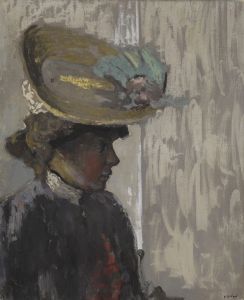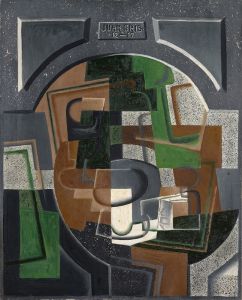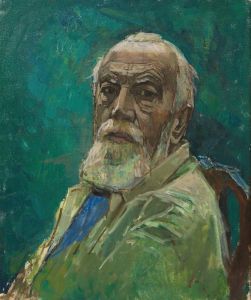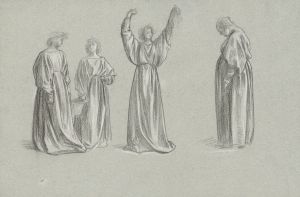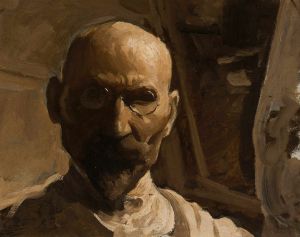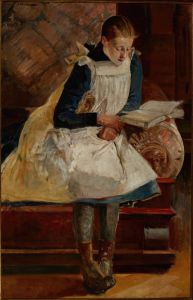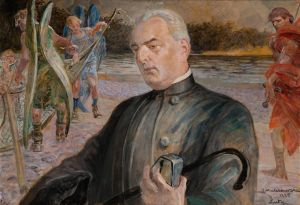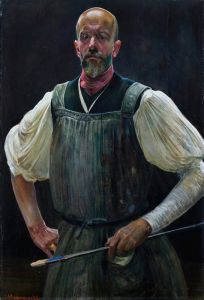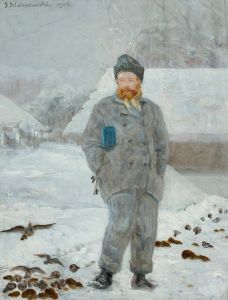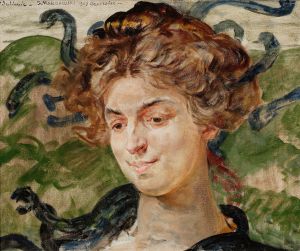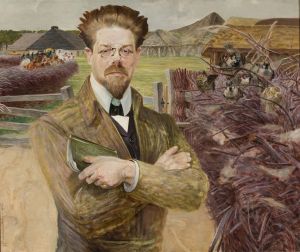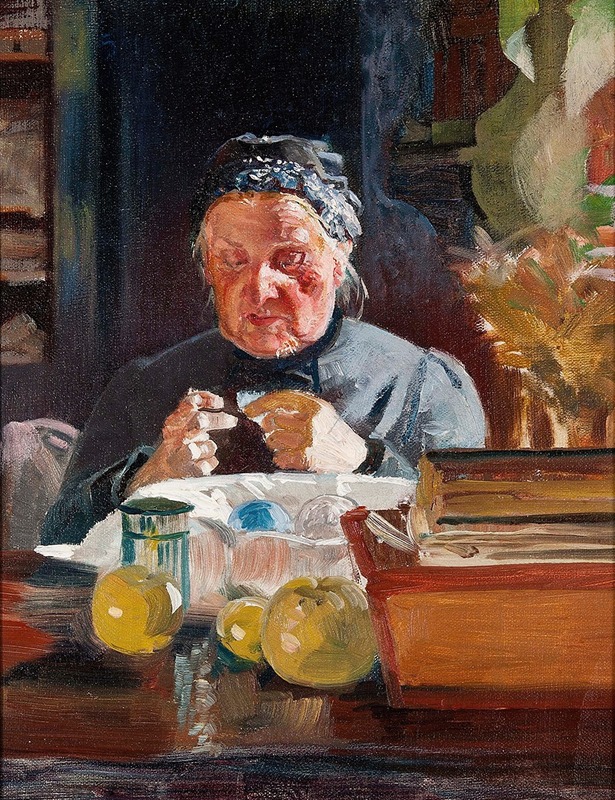
Woman at table, sketch
A hand-painted replica of Jacek Malczewski’s masterpiece Woman at table, sketch, meticulously crafted by professional artists to capture the true essence of the original. Each piece is created with museum-quality canvas and rare mineral pigments, carefully painted by experienced artists with delicate brushstrokes and rich, layered colors to perfectly recreate the texture of the original artwork. Unlike machine-printed reproductions, this hand-painted version brings the painting to life, infused with the artist’s emotions and skill in every stroke. Whether for personal collection or home decoration, it instantly elevates the artistic atmosphere of any space.
Jacek Malczewski was a prominent Polish painter associated with the Symbolist movement, known for his unique style that often incorporated themes of Polish history, mythology, and personal symbolism. Born in 1854 in Radom, Poland, Malczewski became one of the most influential artists of his time, contributing significantly to the development of Polish art in the late 19th and early 20th centuries.
"Woman at Table" is a sketch by Jacek Malczewski that exemplifies his skill in capturing the human form and emotion through minimalistic yet expressive lines. While detailed information about this specific sketch is limited, it is consistent with Malczewski's broader body of work, which often features solitary figures, introspective poses, and a focus on the psychological depth of his subjects.
Malczewski's art is characterized by its exploration of existential themes and the human condition, often set against the backdrop of Polish national identity and cultural heritage. His works frequently include allegorical elements, drawing on Polish folklore, Christian iconography, and classical mythology. This blend of influences is evident in the way he portrays his subjects, imbuing them with a sense of mystery and narrative depth.
In "Woman at Table," the simplicity of the sketch allows the viewer to focus on the subject's expression and posture, which may suggest contemplation or introspection. Malczewski's use of line and shading in his sketches demonstrates his ability to convey emotion and character with economy and precision. This approach is typical of his preparatory works, which often served as studies for more elaborate paintings.
Throughout his career, Malczewski was deeply influenced by the socio-political context of Poland, which was under partition by Russia, Prussia, and Austria during his lifetime. His art often reflects a sense of longing for national unity and cultural identity, themes that resonate in the portrayal of solitary figures like the woman in this sketch. The introspective nature of his subjects can be seen as a metaphor for the Polish struggle for independence and self-determination.
Malczewski's contribution to Polish art extends beyond his paintings and sketches. He was also a respected teacher and mentor, serving as a professor at the Academy of Fine Arts in Kraków. His influence on the next generation of Polish artists was significant, as he encouraged them to explore national themes and personal expression in their work.
Despite the lack of specific information about "Woman at Table," the sketch can be appreciated within the broader context of Malczewski's oeuvre. It reflects his mastery of form and his ability to convey complex emotions through simple yet powerful imagery. As with many of his works, it invites viewers to engage with the psychological and symbolic dimensions of the subject, offering a glimpse into the artist's introspective and often enigmatic world.
Jacek Malczewski passed away in 1929, leaving behind a rich legacy that continues to inspire and influence artists and art enthusiasts in Poland and beyond. His work remains a testament to the power of art to capture the human spirit and reflect the cultural and historical currents of its time.





